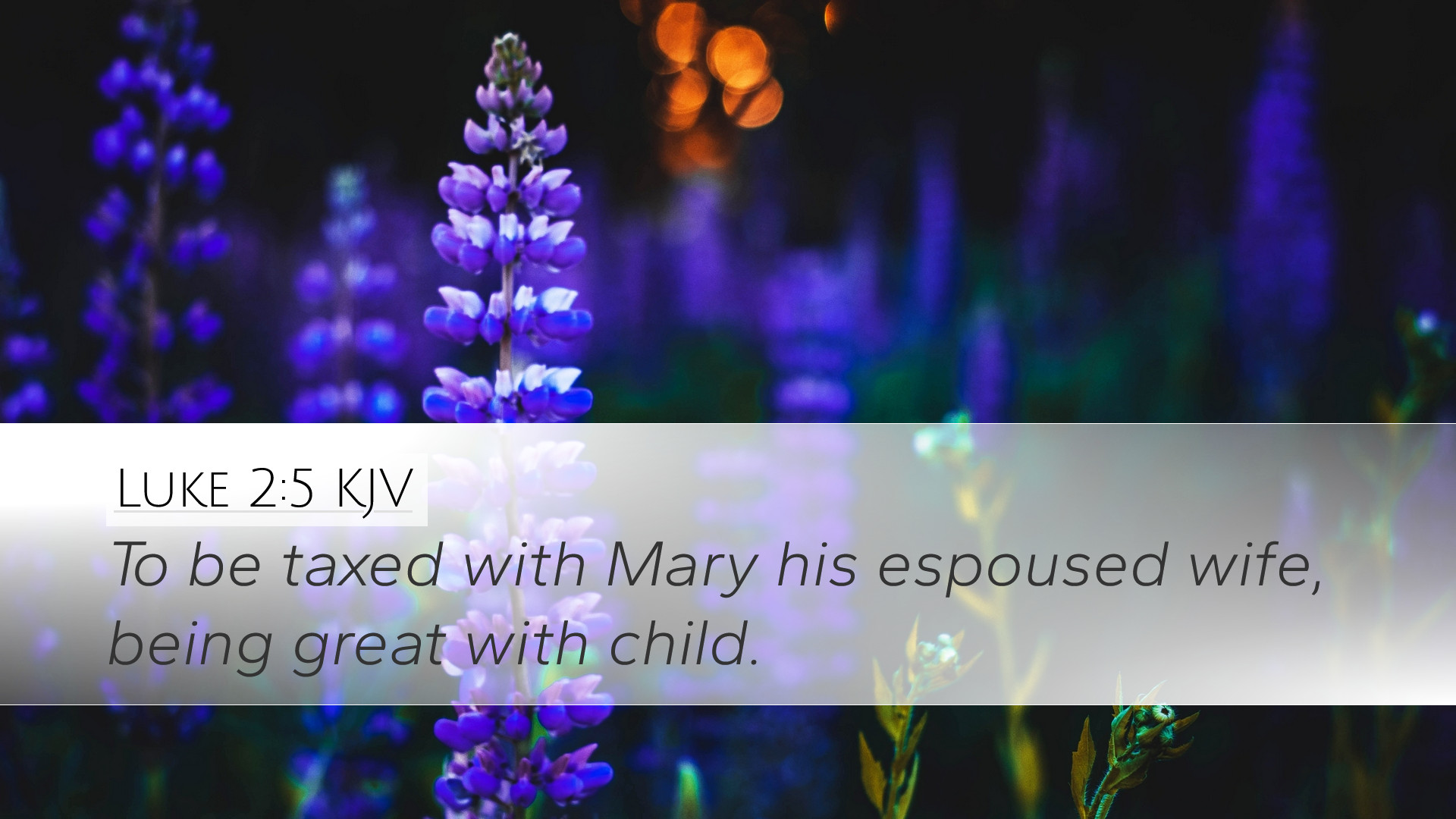Commentary on Luke 2:5
Verse Text: "To be registered with Mary, his betrothed wife, who was with child."
Introduction
This verse is part of the narrative detailing the birth of Jesus Christ, emphasizing the humble circumstances surrounding His arrival. The significance lies not only in the event itself but in the broader theological implications of Jesus' incarnation and the fulfillment of prophecy.
Context and Background
Luke, as the author of this Gospel, provides a meticulous account of the birth of Jesus, situating it within the historical context of Roman governance and Jewish expectations. In this verse, Joseph and Mary travel to Bethlehem for a census decreed by Caesar Augustus, a crucial detail that establishes the timing of Jesus' birth in accordance with prophecy.
Historical Context
- Roman Registration: The registration was a means for the Roman Empire to assess resources and taxation. This reflects the political reality of the time and God's sovereignty over earthly rulers.
- Prophetic Fulfillment: Micah 5:2 prophecies the Messiah's birth in Bethlehem. This verse underscores God's purpose in every historical event.
Theological Significance
This brief passage underscores several theological themes relevant to scholars and theologians.
1. The Humility of Christ's Birth
Matthew Henry points out that the circumstances of Jesus' birth were designed to emphasize His humility. Born in a stable rather than in a palace, Jesus identifies with the lowly and marginalized from His very inception.
2. The Role of Mary
Albert Barnes emphasizes Mary's integral role in God's redemptive plan. Describing her as "betrothed" highlights her commitment and the divine nature of their union, emphasizing her purity and chosen status as the mother of the Messiah.
3. The Implications of Registration
Adam Clarke discusses the importance of the registration. It serves multiple purposes: fulfilling prophecy, showcasing God’s providence, and reminding believers of God's control over earthly matters while leading them to fulfill His divine plan.
The Nature of the Betrothal
This verse describes Mary as Joseph's fiancée, which was considerably more binding than modern engagements. Betrothal in Jewish culture involved a legal commitment that could only be dissolved through divorce. This context enriches the understanding of their relationship and Mary's willingness to accept God's plan.
- Spiritual Significance: The union between Joseph and Mary, despite societal challenges, reflects God's mysterious ways of working through human relationships.
- Mary's Response: Her faith and obedience (Luke 1:38) become pillars of example for believers in aligning with God's will despite uncertainties.
Conclusions
Luke 2:5 encapsulates critical themes for pastors, students, theologians, and scholars, providing insight into Christ's nature, the significance of His humble beginnings, and the essential roles played by Joseph and Mary in God's redemptive narrative. In studying this verse, we are reminded of God's creative sovereignty over history and His capacity to bring forth salvation through the most unexpected means.
As we reflect on this small yet profound verse, let us be encouraged that God’s plans often unfold through ordinary situations, reminding us of our call to trust Him amidst uncertainties.


